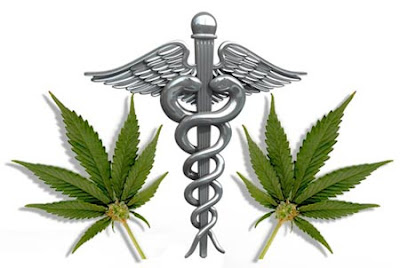The drug hemp has so many applications in medicine, most have already heard rumours somewhere. What is the situation but really like? Hemp is actually a miracle cure for everything? Or are just propaganda tales of
legalization proponents?
The first written information on the medical use of
cannabis probably go back to a roughly 4,700 year-old Chinese textbook on botany and medicine. From 16 Century cannabis was incorporated into the herbals. Cannabis was introduced for the first crusade in the folk medicine and figured in many medicines monastery. Applications were rheumatic and bronchial disorders, cannabis was also generally prescribed as a substitute for opium. In the 19th Century it was also used for migraine, neuralgia, epilepsy-like seizures, insomnia, and more. Marijuana was, until it was in 1898, competes with aspirin and eventually replaced as a remedy by a wide range of new, synthetic drugs, in America the most commonly used painkillers. Between 1842 and 1900, cannabis preparations made there half the drugs sold out (Herer 1993). Dosage difficulties paradoxical effects and the development of synthetic drugs took the prescriptions in the 20th Century onwards, until about the mid-20th cannabis Century was almost completely banned worldwide. Today, the medical use of cannabis in many countries (even some U.S. states) allowed again. In Austria, however, it is still virtually impossible to get hold of legal cannabis as medicine!
The truth is, as always in the middle. Cannabis is not a panacea, of course, but today there are many applications where cannabis is an effective and low side effects medicine. The biggest advantage of cannabis as a medicine is its unusual security. The ratio of lethal to effective dose is estimated based on animal data on oral intake 20,000 to 1, and at least 1000 to 1 There is not a reliable indicator of person's death by
marijuana use. Cannabis has damaging the advantage to disturb any physiological functions or organs, when taken in therapeutic doses. "
AIDS patients lose due to lack of appetite and malaise often greatly in a short period of weight. Patients report that after taking cannabis for the first time properly again feel appetite. An appetizing effect in AIDS and cancer is observed with daily doses of 5 mg THC. The dose may be increased as needed up to 20 milligrams daily. In a study with anorexics THC brought no success. Has recently been a positive influence on the weight of patients with Alzheimer's disease, the refusing food, reported (Volicer 1997). Surprisingly, it took under THC compared to placebo as well as disturbed behavior.
Pain
There are only a few studies. THC was effective in an oral dose of 15 or 20 mg effective as well for pain in cancer patients. There were, however, in some of the patients do not tolerate side effects. Cannabis products may seem to the effects of opiates potentiate (Welch 1992), so that a combined administration could prove for severe pain as useful because the effect of potent but problematic opiate massively reinforced, so that by these means smaller doses can be used .
Other indications are migraine and other headache types , degenerative diseases of the musculoskeletal system, phantom pain, all pain disorders, in which a relaxation of smooth or striated muscle has a beneficial effect, as painful spasms, painful menstruation, ulcerative colitis, etc
Asthma
Cannabis has a strong bronchodilator effect. The effects of a marijuana cigarette or oral 15 mg THC correspond in bronchodilatory effect as the clinical doses of common asthma drugs such as salbutamol. After inhalation of the effect lasts about two hours. Instead of smoking cannabis would specifically for this application, evaporation and inhalation recommend using a vaporizer.
Depression
Repeats a soaring of THC or cannabis in reactive depression has been observed in the context of serious disease. After patient reports hemp in modern folk medicine, often used with the connivance of the doctors, even with endogenous depression
Crohn's disease
In Crohn's disease is a chronic inflammation of the bowel whose cause is still largely unexplained. The inflammation localized mainly in the small and large intestines and affect all intestinal wall layers. In 20-40% of cases, by chronic inflammation to fistula formation. These are channels that lead from the intestinal wall of other organs or through the abdominal wall to the outside. Crohn's disease is not curable.
Glaucoma
Local administration of THC reduces intraocular pressure in healthy subjects and glaucoma patients with no side effects on blood pressure and mood. The mechanism of action is not known. The effect lasts for 4 to 6 hours.





